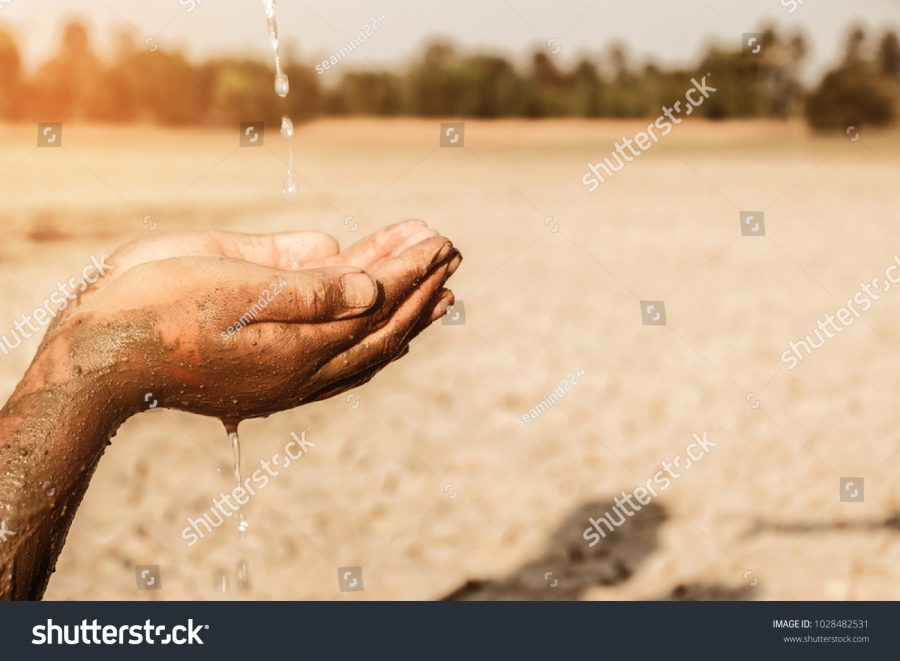Putting a Price on the Priceless
What must be done to ensure equitable access to the most necessary resources
October 19, 2019
When the Spanish first arrived in Mexico City, it had been a flourishing Aztec metropolis known as Tenochtitlán, an oasis situated on an artificial island in the Lago de Texcoco. Knowing the cultural value of this pinnacle of Aztec engineering, the conquistadors razed the city and abandoned the dikes that protected it from floods; in its place, they constructed Mexico City, an apt symbol for how the Spanish erased millennia of Native culture within decades of their arrival.
Despite the depopulation of the Americas due to the smallpox that accompanied colonialism, the population of Mexico City took off with the influx of new colonists, a dilemma necessitating flood control and new public health measures. In response, the Mexican government embarked on a massive drainage project, which destroyed the surrounding ecosystem and the lifestyle of the indigenous people who relied on it. Still, the consequences have proven themselves long-term. Today, such short-term policies have left Mexico City with little surface water to satisfy the needs of its burgeoning population of 19 million people. Reliant on the depletion of precious groundwater from the aquifers beneath it, Mexico City has an uncertain future. Water supplies that took thousands of years to accumulate are evaporating, precipitating mass land subsidence; although the brunt of the impact is believed to occur in the 22nd century, already the poor are facing a new, dry reality in which tap water is irregular and, when it arrives by the trickle, is opaque.
As more volatile weather, urban sprawl, and industrialization demonstrate the social ramifications of changing environmental conditions, what is occurring in Mexico City is not an outlier; it is the norm. According to the United Nations, access to water is a fundamental human right, the basis on which all other human rights are based, yet our governments have long treated the “next Petroleum,” as Goldman Sachs had dubbed water, and other ecosystem services as if they were worthless. So what are the possible solutions to remedying our current environmental failings, without hurting the poor and constricting economic growth, as traditional plans for environmental protection have unintentionally brought with them?
Environmental ethicists have long argued that it is degrading to assign a monetary value to something as invaluable as nature. By adhering to a utilitarian approach that gives the environment value only due to its economic benefits for humankind, we commodify the oxygen we breathe and the water we drink, as well as further an anthropocentric view of Earth that devalues the intrinsic meaning in its diversity of species and ecosystems. Still, while such a view that necessitates a cultural revolution is certainly true, we cannot ignore the financial implications that environmental degradation has. To reach a broader audience, we must also talk about money, the true lingua franca of the 21st century.
Charging for water would ensure that cotton would not be grown in the Sonora Desert using federal dollars and that in development permits in Las Vegas, water concerns would be considered. Still, it raises other questions; how do we ensure that equity exists in the distribution of water across populations? When farmers no longer have easy access to water, many will go bankrupt and be forced to relocate from the lands that their families have called home for generations. When we start charging for water and water transport, the existence of many cities far away from water sources – Los Angeles, Doha, and Lima – will be questioned.
In this context, cities like Philadelphia are pioneering new solutions. In an initial attempt to increase the affordability of water, Philadelphia began tiering water prices to income; by lessening the burden on low-income communities, the implemented bill relieved the stress associated with rampant delinquent water payment while still ensuring that all communities know that water has a financial value. Such innovative methods will become increasingly needed as local, national, and international governments undergo a paradigm shift in how they view natural resources; the example of Philadelphia illustrates that such a change is not only possible but practical in helping avoid the future of Mexico City.
Sources:
https://www.npr.org/2018/09/12/647180486/mexico-city-thirsty-and-sinking
https://www.scientificamerican.com/article/federal-dollars-are-financing-the-water-crisis-in-the-west/
https://www.inquirer.com/philly/news/politics/city/for-low-income-residents-philadelphia-unveiling-income-based-water-bills-20170620.html


